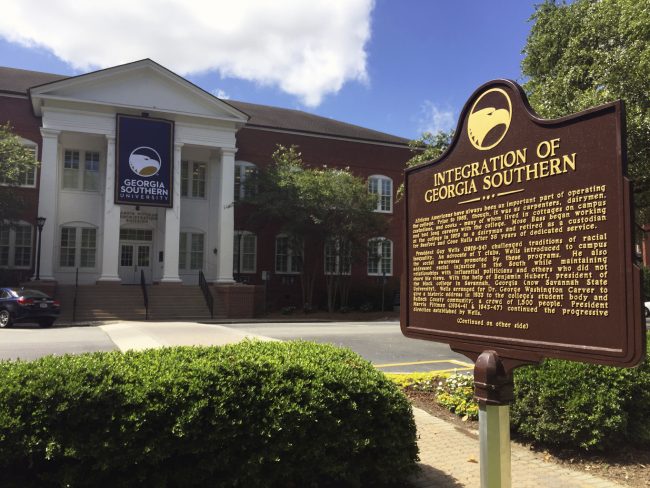Bernice Banks was one of the first Black graduates of Georgia Southern College. She attended the college ten years after integration and received a Bachelor of Business Administration.
As a proud member of the Georgia Southern College class of 1997, Bernice Banks has always held a special place in her heart for the school.

“I don’t recall any negative experiences, race-wise, while I was on campus… A good description would be peaceful coexistence,” said Banks.
Banks initially chose Georgia Southern over two nearby Historically Black Colleges or Universities (HBCUs) because she was aware that there could be unjust doubt cast upon her abilities. Meaning that, soon after integration had just been introduced, there was a lot of judgment thrust upon HBCUs for the quality of education they provided. Not based in fact or numbers, she explained that this judgment would be merely based on the fact that it was an HBCU and not a Predominantly White Institution (PWI).
“I was just conscious of where the country was at the time, having just come out of desegregation, I was very conscious of the attitudes that people had about race and minorities…For me, logically, I didn’t want to have a question about my race or education. I just wanted to cut that obstacle out,” Banks said.
Bernice Banks always thought that the administration at GS contributed to her lack of knowledge about any negative, racially-motivated situations. Specifically, Banks credits the attitude of those higher up in the school for her experience.
“They [GS administration] had a belief in wanting to make it [integration] work, and you know, leadership starts from the top,” Banks said.
After graduating GS, Banks went on to work for the Department of Treasury for over thirty years before retiring. Even after she graduated Georgia Southern, Banks remained a part of the alumni network and continued to uplift Black voices.

Banks was one of the early organizers of Georgia Southern’s First 500, a group of the first 500 African-American students at GS. The First 500 has hosted many annual talks and panels throughout the years that give those currently attending GS a look into the minds of those who have attended in the past.
Banks also has a hand in her hometown of Hawkinsville, Georgia, uplifting the voices of those who may need it. In February 2018, Banks wrote an article for her local news outlet that discussed how African-Americans invented many things in this country but did not get credit.
Banks had a few tokens of advice for current Black students at GS, mostly focusing on making sure that you stand for something. Banks is a believer in always doing your best, even when you think nobody is looking.
“By doing your best, that means you value yourself as a person, and when you value yourself, it emanates from you,” Banks said.
Banks suggests that if students find themselves in a situation where they are faced with an injustice, no matter how small, to fight for what’s right.
“You have to stand for something, not everything… We can’t fight every battle, but we have to fight for what’s important,” Banks said.




